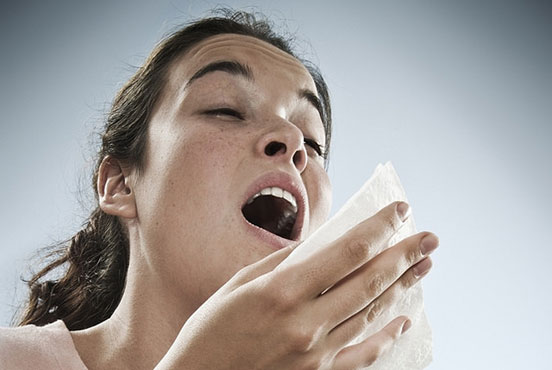House pets can give you great love, but every dog owner, or a cat owner, or anybody who has a pet has to be aware that there are contagious diseases that the pets can transfer to a human. Adequate hygiene and care of household pets is the best way of prevention. A vet gives all the answers for taking care and good hygiene of pets.

If you have a house pet, it will for sure make you smile every day. Be it a little fish in aquarium, a cat or a dog, house pets are mood stimulators and the moments spent with them you will remember for the rest of your life.
However, it is important to know that house pets can be carriers of some contagious diseases. This is a list of seven.
-
Salmonella
Although it is popularly known that this disease can be only gotten from certain foods that are thermally undercooked, few people are aware that house pets can also transfer it. Salmonella is a type of bacteria that lives in the digestive tract. Animals can have salmonella, and can still look healthy and have a regular behavior. Still, affected animals will transfer the bacteria through the feces. This way, other body parts can be contaminated, such as the hair, the tail, which in turn makes it easy for humans to get the bacteria.
If you don’t wash your hands after a contact with affected animal, you can easily get contaminated. Therefore, wash your hands thoroughly if you want to lower the risk.
-
Ringworm
This is a common yeast infection for most people. You can get the infection from pools but also from contact with infected animals. To look out for ringworm, check for a red circle with a darker edge on the outside, from time to time. They are also accompanied by strong itch, and a little blister may also appear.
-
Lime Disease
You can easily get infected with lime disease from ticks that can be on your pets. Your pets usually pick them up while playing or walking on open areas like the woods or parks and can be hidden in your pet’s body for a long time.
If you get infected with lime disease, you may or may not feel some of the symptoms. However, if you notice a suspicious rash on the skin, if you have fever or muscle pain – look for a doctor’s help immediately.
To protect yourself, avoid taking your house pets in tall and thick grass, especially during spring and summer. After playing outdoors, check your pet for ticks, and you should do the same on yourself.
-
Toxoplasmosis
This happens when people get infected with microscopic parasite that is common among animals, especially cats. The disease can cause flu-like symptoms but it can easily have much more complications if a pregnant woman gets infected.
Regularly clean the cat’s litter box and use gloves. Avoid direct contact with animal feces. Pregnant women should avoid cleaning cat’s litter box. Make sure you still wash your hands afterwards.
-
Rabies
Rabies cannot be left out when talking about contagious diseases. It is a virus that infects the central nervous system. To prevent rabies, avoid meeting other animals and regularly vaccinate your pets.
-
Helminthiosis
Maybe you are not even aware, but you can get worms from your pets. Those worms live in the digestive tract as parasites, and you can get infected if you have contact with the feces of the infected animals. Many times people get infected by animals by walking barefoot. These worms can easily get under your skin without you even noticing.
-
Cat scratch disease
Many cats carry a bacteria that causes this infection. This is a disease that lives as a parasite on the red blood cells. This is how it destroys the erythrocytes which can lead to anemia. People can get infected by getting bitten or scratched by a cat, or if they lick an open wound.
Sometimes after you get scratched by a cat, the wound can get swollen and become red. You can also feel symptoms of mild flu, but the disease can also get much more serious. It is treated by antibiotic.
To prevent an infection, be cautious while playing with your cat. If you notice a scratch, wash it with warm water and soup right afterwards.




















